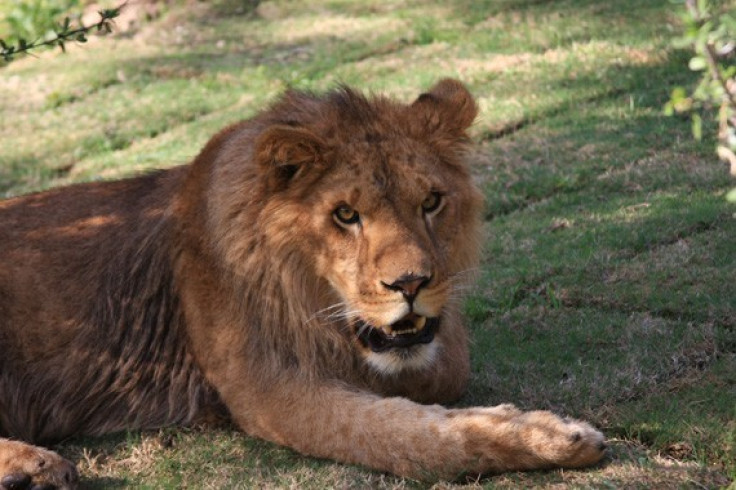Dianna Hanson Lion Mauling: Conservation Agency Urges Stricter Safety Standards [EXCLUSIVE]
The tragic death of Dianna Hanson at the Cat Haven wildlife sanctuary in California should focus attention on the dangers of working in captive animal facilities, according to one of the world's foremost animal advocacy organisations.

Speaking to IBTimes UK, Adam Roberts, executive vice president and co-founder of the Born Free non-profit organisation, said the incident should serve to emphasise the extreme levels of safety needed at facilities housing big cats and other dangerous animals.
Roberts' comments come in the wake of reports suggesting managerial negligence may have allowed the lion, Cous Cous, to escape from its cage and attack Hanson.
"On the cage issue yes, it seems that there was a glitch in security. Whether human error in terms of not properly closing gates and locking them, or a flaw in the construction, it shows that captive animal facilities have to have iron-clad security in order to protect both people and animals because incidents like this will happen even with the smallest chance," Roberts added.
Inadequate security?
Cous Cous's mauling of Hanson is the second reported incident of a lion escaping its enclosure in the last few days.
An earlier IBTimes UK report highlighted a case of negligence in a Chinese zoo, where a zookeeper mistakenly forgot to close the cage door after cleaning the enclosure. Two lions - a male and a female - escaped and caused considerable panic.
Fortunately, no casualties were reported and both lions were safely returned to their cages. A zoo official later acknowledged the escape was down to "human error". And it is this probability of error that must be minimised, according to Roberts.
"Some people, especially workers at these kinds of places, also become desensitised to the dangers of working around such powerful and dangerous exotics. This false sense of security might ultimately lead them to a less diligent approach to their own safety. It's not about placing blame, of course, it's about recognising the need for unsurpassed diligence in facility security," he explained.
Roberts also spoke about licensing norms, in the US, for captive animal facilities like Cat Haven. He explained that although some facilities were licensed by the United States Department of Agriculture (USDA), the actual requirements for licensure were minimal
The USDA enforces the Federal Animal Welfare Act (1966) in the US and this is the minimally accepted standard for animal care. The USDA has confirmed an investigation into the Cat Haven attack.
"The other problem is that regulations are also done on a state by state basis, with some states being stronger than others," he concluded.
Roberts was speaking from Bangkok, where a global conference on illegal trade in wildlife is being held.
© Copyright IBTimes 2024. All rights reserved.





